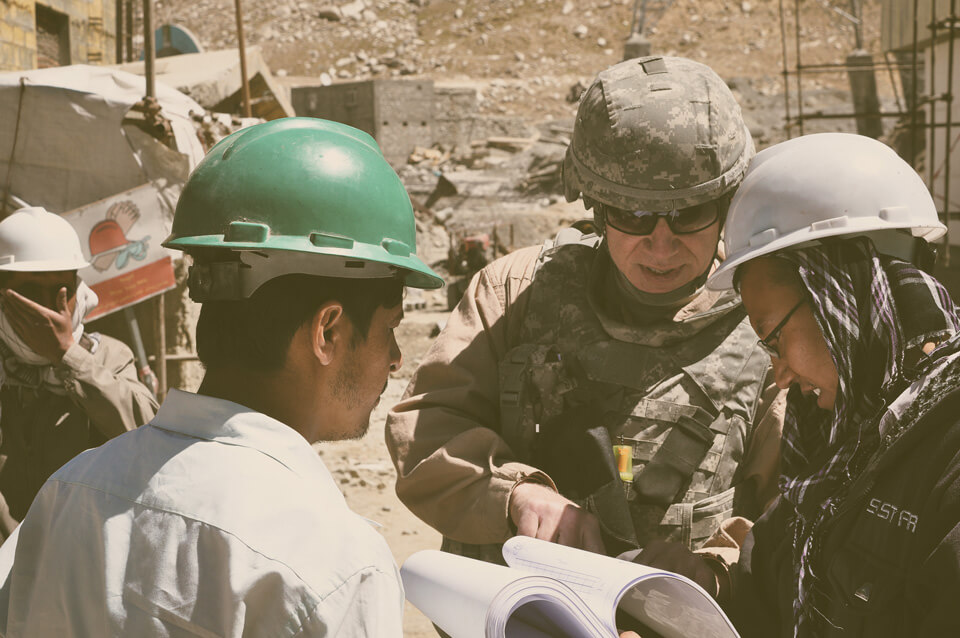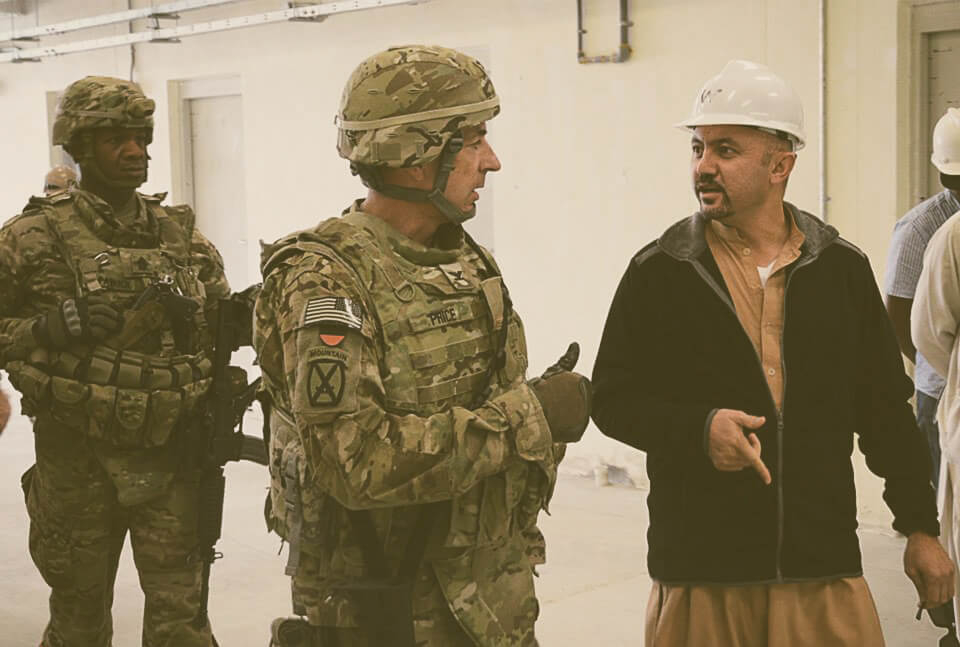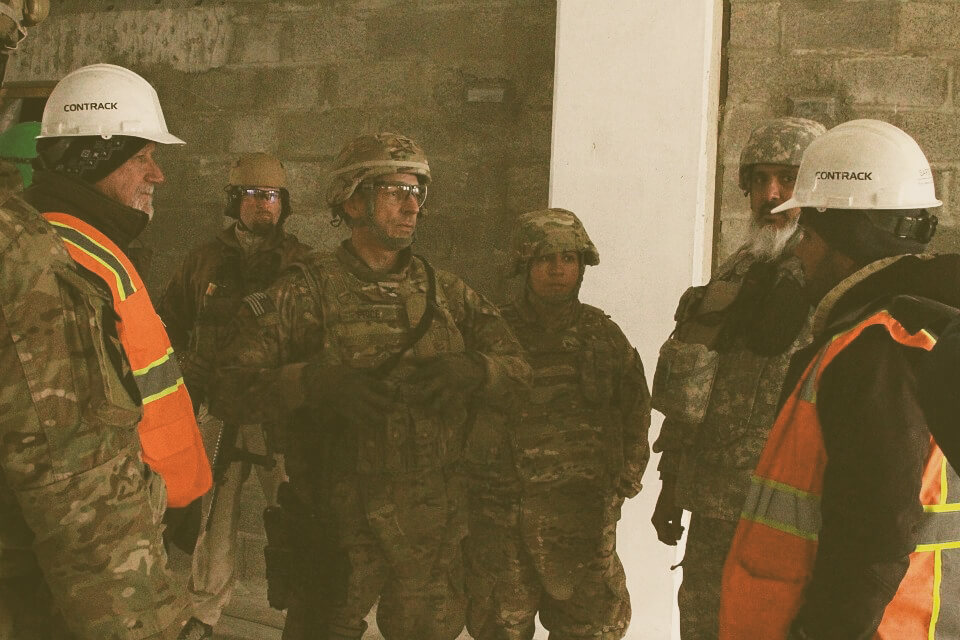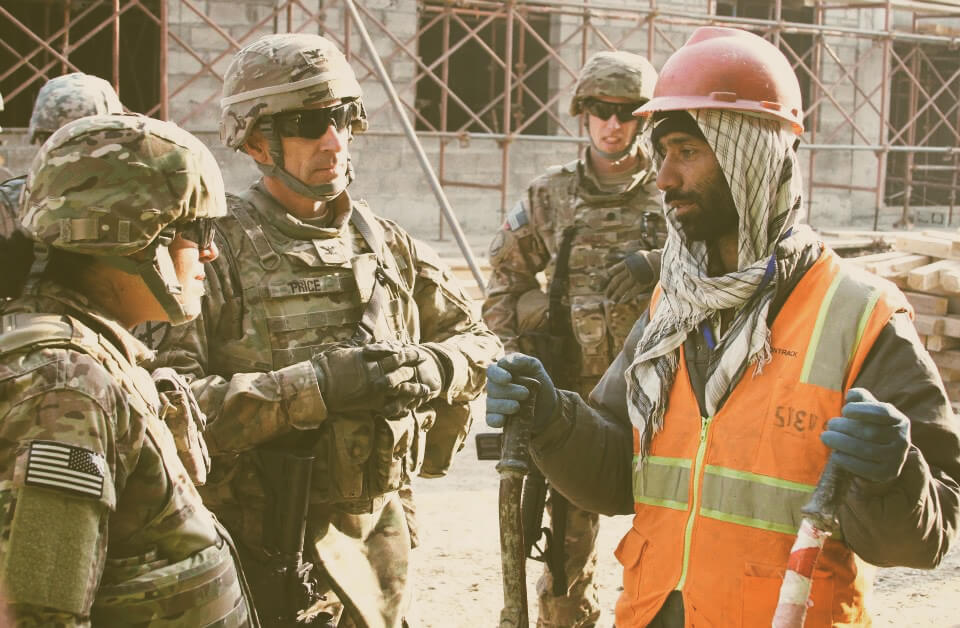From Kabul With Love




It has some of the most unforgiving terrain in the world, a landlocked, mountainous country plagued with frostbitten winters and blazingly hot summers. “But the worst o’ your foes is the sun over’ead/You must wear your ’elmet for all that is said/If ’e find you uncovered ’e’ll knock you down dead,” British poet Rudyard Kipling wrote in “The Young British Soldier.”
Soaked for centuries in the blood from many an invading army, Afghanistan remains a ruggedly beautiful but desolate outpost suitable for only the hardiest of souls. Add acute economic underdevelopment and ethnic and tribal violence to the mix, and Afghanistan becomes even more forbidding.
It’s also the place where Col. Michael Price, M.S. ’93, proudly served until recently.
A 25-year Army veteran, Price has served around the globe, from Kansas City to Germany to Operation Desert Storm in Iraq. He says he will never forget Afghanistan or its people.
In July 2013, Price went to Afghanistan to lead the U.S. Army Corps of Engineers’ efforts to help rebuild the war-torn country before the departure of U.S. troops. As head of the Transatlantic Afghanistan District, Price oversaw 330 Americans, who, in cooperation with Afghan contractors, worked on about 250 projects, mainly the construction of airfields, barracks, medical facilities and other key infrastructure initiatives that will benefit the Afghan National Army and police. He also supervised several civilian projects, including a $10 million women’s dormitory at Herat University that will house 113 students.
“I believe in the mission. I could have gone to Washington, D.C., but I came here because I believe we need to finish what we’ve started,” said Price, who was based in Kabul until returning to the U.S. this summer. “We’re making history for the [U.S. Army] Corps [of Engineers] and for the United States. I believe Afghanistan has a bright future in front of it.”
In the aftermath of 9/11, the United States invaded Afghanistan to topple the repressive Taliban, which provided sanctuary to Al-Qaeda and its leader, Osama bin-Laden. The Taliban’s defeat has benefited many Afghans. In April, The Economist reported a tenfold increase in the number of Afghans with access to basic health care, the proliferation of media and millions of children, including girls, now receiving an education.
In May, President Obama announced he planned to withdraw the last troops from Afghanistan by the end of 2016.
A 1989 graduate of the U.S. Military Academy, Price earned a master of science degree in systems engineering from USC Viterbi in 1993 through a satellite campus in Wuerzburg, Germany. The USC program, he said, “taught me how to think scientifically and thoroughly.”
Price first came to Afghanistan in 2002 to plan combat operations, and returned two years later for the same duties. During his third tour of duty in 2006 and 2007, Price trained and deployed an entire battalion to Afghanistan and successfully oversaw its return to the U.S. His battalion suffered not a single casualty.
Whenever Price traveled around Afghanistan, he said, locals thanked him and the Americans for “taking back their country” and for providing work and opportunity.
One project that garnered considerable goodwill was the upgrade of the Salang Tunnel, a 1.6-mile pass that connects the north to Kabul. Built by the Soviets in 1964, the tunnel had fallen into such disrepair that truckers trapped inside during extreme traffic jams occasionally died from carbon monoxide poisoning.
Under Price’s supervision, a team of Afghan contractors repaved the road and added new lighting and exhaust fans. The tunnel reopened in December 2013. The result: gridlock largely vanished and internal trade flourished.
“I made an impact every day,” said Price. “I was a planner, organizer, troubleshooter. I did a bit of everything.”
Whenever possible, he visited project sites throughout the country. However, security concerns often kept him away. Adding to Price’s difficulties were frequent delays in shipments of water heaters, generators, electrical components and other important items through the oft-closed Pakistani border.
The myriad of challenges sometimes wore on him. He missed fishing and hunting back home in Michigan, along with precious time with loved ones.
Still, Price said he treasured his time in Afghanistan. To communicate with the local population, he learned a little Farsi. “It says a lot to an Afghan when you try to speak their language,” he said. He has also read vociferously about the region, counting Steve Coll’s The Ghost Wars, which details America’s history in Afghanistan, and Khaled Hosseini’s novel The Kite Runner among his favorites
“He is the epitome of a leader,” said Maj. Steve Holmberg, who has known Price for 12 years and served as his adjutant for the 41st Engineering Battalion in Fort Drum, New York. “He always leads from the front, with his words and actions consistently aligned.”
“I’ve told the Afghans that I hope one day to bring my family here as tourists,” Price said. “This is a beautiful country, and I would like to share it with them.”




